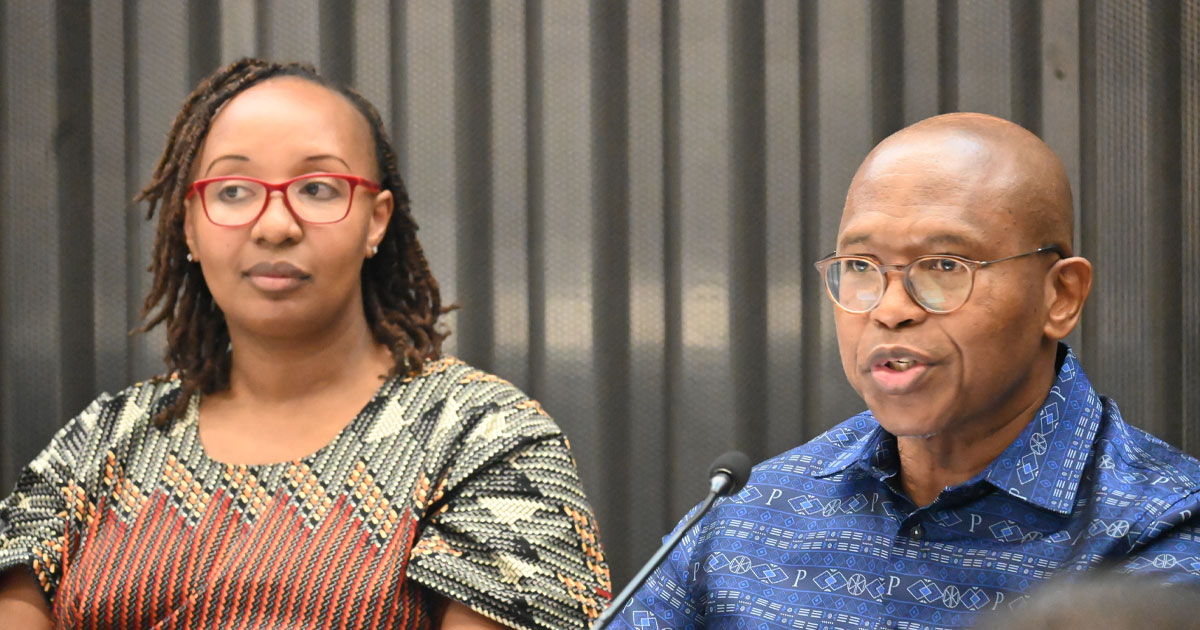As part of the Moot, the Fifth Nelson Mandela Lecture took place on the evening of 17 July at the Maison de la Paix. The Geneva Human Rights Platform played a pivotal role in ensuring that this lecture took place.
Unpacking the theme of the ‘Intersectionality of race and gender in affirmative action processes’, the main speaker of the day, Ms Patricia Galvao Teles, emphasised the need to promote gender parity in international spaces including the International Law Commission (ILC) where she currently serves as a member. The auditorium was astounded to hear that women only occupy 6 of the 36 seats in the ILC. This set the tone of the lecture, as key provisions of instruments such as the CEDAW were touched upon including the draft General Recommendation 40 that further articulates how gender parity may be achieved.
The general sentiment of the room was that, although numerous provisions had been promulgated, including Kenyan constitutional provisions explicitly calling for gender parity in parliament, there is wanton non-implementation of these provisions. Ms Kiama – who is the director of programs at she’s the First (a feminist none profit organisation that advocates for the advancement of female rights) formed part of the panel of experts of the lecture – cited how Kenyan governments failed to act in accordance with the affirmative action directives in articles 27(8) and 81 of the Constitution. In fact she candidly asserted the unconstitutionality of the Kenyan parliament that is in defiance of a Supreme Court judgement that ordered the dissolution of parliament. Ms Kiama also stated that projections of the World Economic Forum reveal that true gender parity can only be achieved by the year 2154. Mr Cláudio Foquiço also confirmed that the practical integration of these instruments, ratified at international levels and even domesticated at national the national level, is missing.
Ambassador Mxolisi Nkosi who heads the South African Permanent Mission to the United Nations in Geneva, in delivering his closing remarks, drew attention to the injustices of South Africa’s past as a reminder of the effects of racial and gender inequalities. However, he also acknowledged the relevance of affirmative extended beyond South Africa and drew attention to SDG 5. He further encouraged each person present to take an active role in the protection and preservation of human rights just like the icon – Madiba. The night ended with a cocktail function during which the four semi-final teams were announced.
The above narration summarises the 16th Nelson Mandela World Human Rights Moot Competition which would not have been possible without the sponsorship and partnership of the European Union through the Global Campus of Human Rights, the Swiss Confederation, the United Nations Human Rights Council Branch (HRCB) at the Office of the High Commissioner for Human Rights (OHCHR), the Regional Office for Southern Africa (ROSA) of the Office of the United Nations High Commissioner for Human Rights (OHCHR), Cláudio Foquiço Advogados and also the Geneva Human Rights Platform, Lucerne Academy for Human Rights Implementation and the Academy on Human Rights and Humanitarian Law, American University, Washington D.C.
Watch the Recording
We also appreciate the solidarity of the South African Permanent Mission to the United Nations Office in Geneva.


